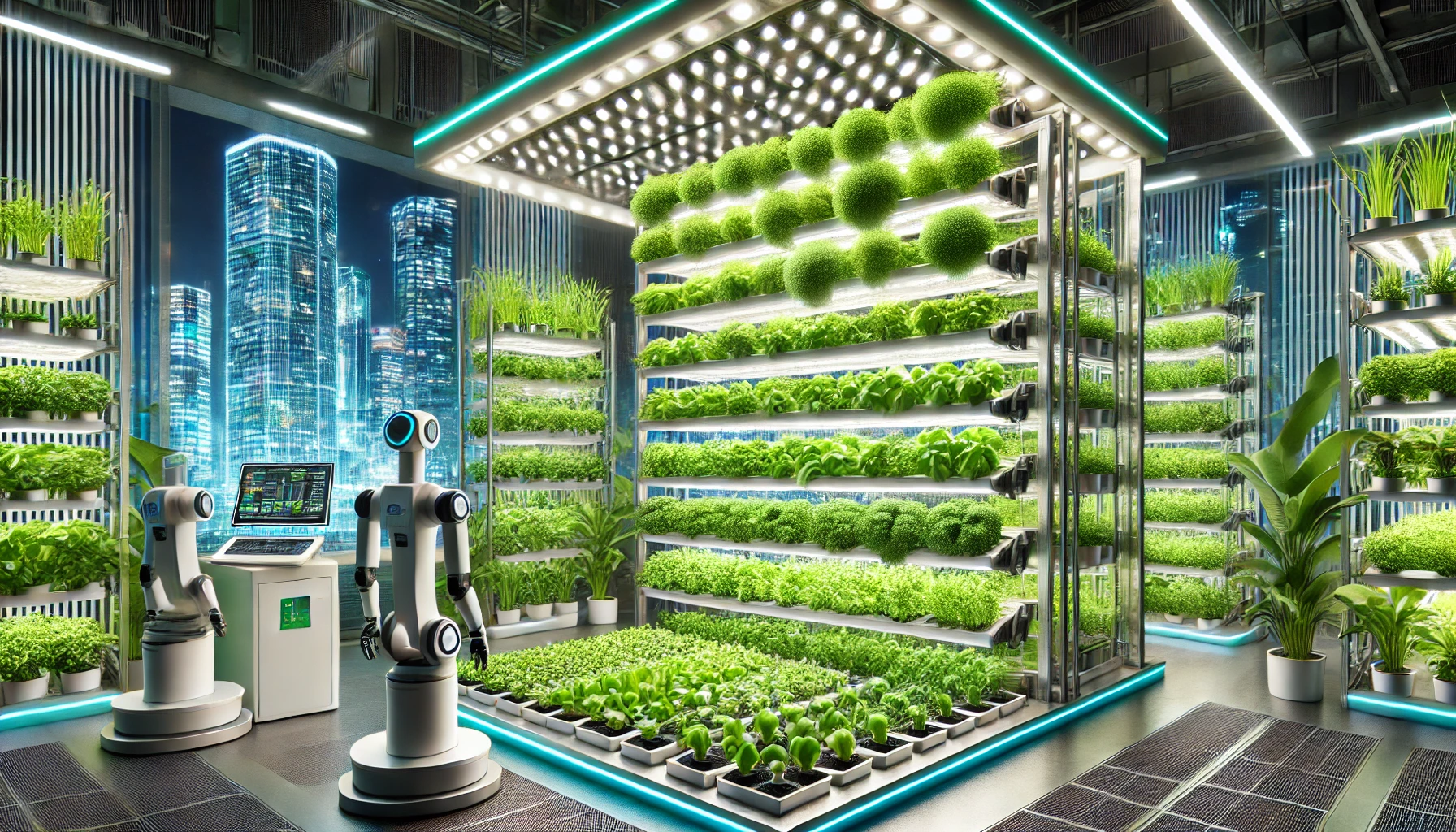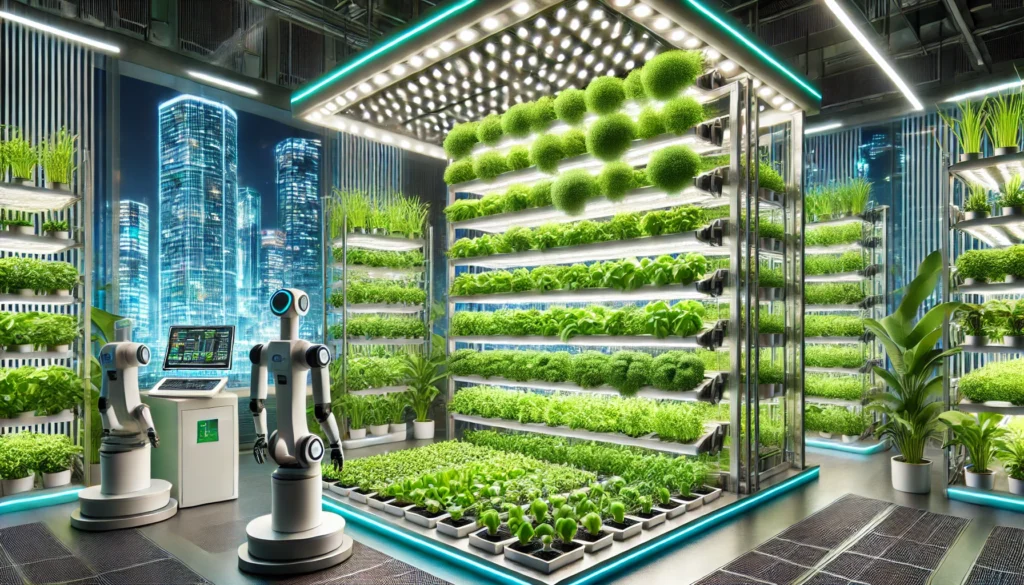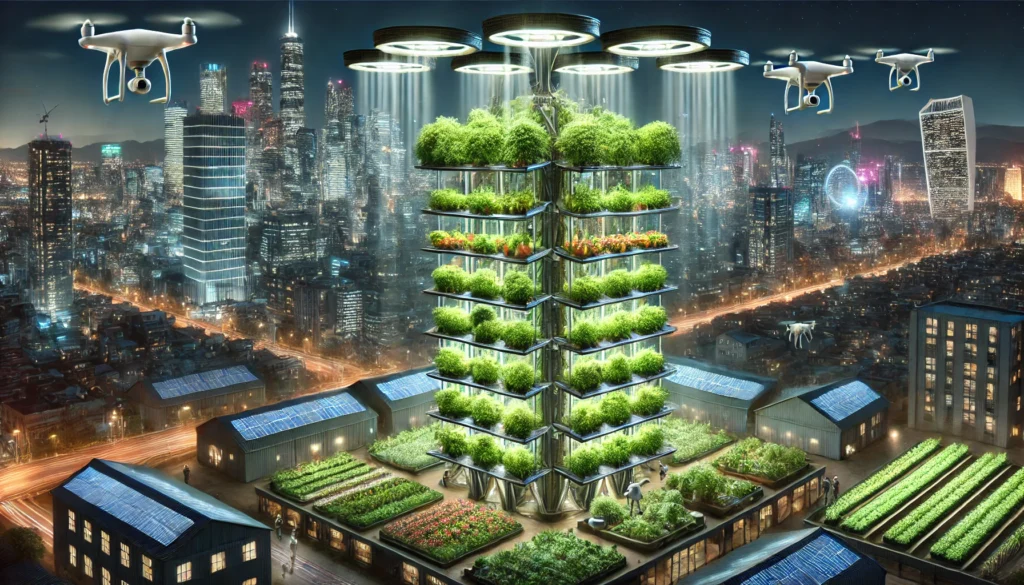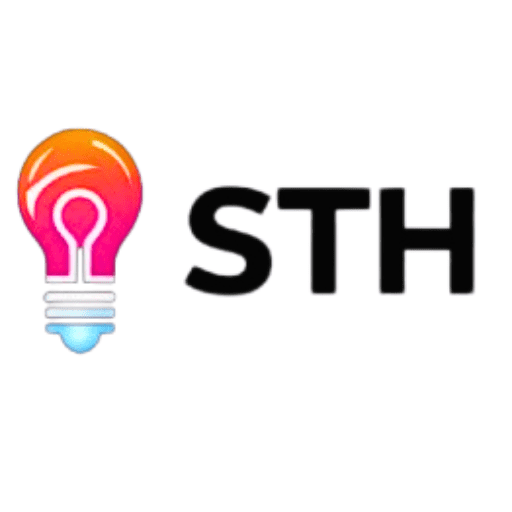Today, when the human population and climate change are putting pressure on conventional agricultural practices, Bowery Farming is setting a new paradigm. This startup from New York City has revolutionized how food is grown by creating advanced indoor farming solutions without soil.
What is Bowery Farming?
Bowery Farming is an agricultural technology started in 2015 by Irving Fain and is major in the vertical farming technique of cultivating crops. Bowery Farming has been able to grow fresh pesticide-free crops, all year despite weather conditions by adopting enhanced technology such as the use of artificial intelligence and automation. Their mission is simple yet ambitious: to extend high-quality fresh produce to the maximum number of consumers using minimum harm to the environment as compared to conventional farming.
About the Founders
The Bowery Farming company was started by Irving Fain, a businessman who co-founded CrowdTwist, a customer loyalty and analytic system. It perfectly makes sense that Fain decided to deal with the problems of conventional farming because of his passion for technology and sustainability. With the help of a team of engineers, scientists, and agricultural professionals, Fain developed the Bowery startup into one of the leaders of the tech industry. His leadership calls for the optimization of technology in the achievement of addressing global problems in food production.
Bowery farming is an innovative solution to urban farming and there are some interesting facts concerning this amazing technique that one might be eager to know.
AI-Driven Farming: BoweryOS is the company’s operating system, which runs entirely on AI, and utilizes algorithms that are constantly overseeing the development of the crops to make farming as efficient and environmentally friendly as possible.
Hyper-Local Produce: Bowery’s urban farms mean they can grow and deliver fresh produce and this is done in days hence reducing emissions.
Sustainability Milestones: 90% of Bowery Farming’s water is recycled, and by not using pesticides, their foods are healthier, and our surroundings are as well.
Award-Winning Innovation: The company has been awarded by Fast Company and Forbes and many other awards for their innovation in the tech field.
Celebrity Support: Another farm of this kind is Bowery Farming which has Natalie Portman among its investors and speaks about the company’s popularity.
The Technology Behind Bowery
Bowery Farming today is driven by its unique operational system called BoweryOS. This is an elevated-level platform that comprises machine learning, IoT devices, and data analytics in identifying and managing changes inside the farming cycle. Temp, humidity, light intensity, and plant growth in the farms are all monitored online so the system can make changes based on the data that the sensors are feeding it in real-time.
Bowery’s tech provides optimal care for every plant and delivers nutrients in the right quantities the plant requires. Therefore, their produce matures faster and requires only 5% of the water they use in conventional farming practices. Furthermore, no pesticide is used and long value chains are done away with so it results in better quality of food for consumers as well as reduced impacts on the environment.
Why Bowery Farming Matters
Bowery Farming addresses some of the most pressing challenges in agriculture today:
Climate Resilience: Conventional agriculture is very vulnerable to climate change; whether it be a drought year or a year of floods. Unlike outdoor farming, a system that Bowery uses for its farming the weather factors do not affect its produce in any way.
Land Use: Vertical farming has been shown to use significantly less land than conventional farming does. Bowery’s facilities can be located in cities and this way, produce is transported over smaller distances thus making it fresh.
Food Security: As the global population continues to grow with expected figures reaching 10 Billion by 2050, increased efforts towards increase of food that people can be fed sustainably. But Bowery Farming has a ready answer – smart, modular, and highly profitable.
Economic Impact: Bowery Farming also employs urban growth, as the company builds farms close to cities. These facilities also promote the Development of Agriculture and Technology Sectors Furthermore, these facilities also contribute value to the local economy.
Scaling for Impact
Bowery Farming started and has quickly grown very large as an organization. The company has several distribution centers located in the United States of America, where it sells fresh produce to the leading Supermarkets and online stores. Its special offering is the vegetables containing greens, selected herbs, and other exotic crops which are grown with much perfection.
In July 2021, Bowery announced it had raised $300 million for Series C funding which makes its total valuation worth 2.3 billion dollars. Google Ventures, Temasek, and GV are among the investors currently funding the company, which must believe in its mission and future quite a lot. Although Bowery Farming is a private entity and is at the moment, not publicly traded, the market-watchers focused on its future IPO plans. Evaluations suggest that The company generates tens of millions of turnovers in a year, thanks to the company’s constant growth and strong networks.
Competitors
Bowery Farming operates in a competitive vertical farming industry with other notable players:
AeroFarms: Another company that will be important in vertical farming is the AeroFarms Company which is based in Newark New Jersey, AeroFarms’ aeroponic displays employ mist rather than water or soil to nurture the crops. Currently, AeroFarms mostly deals with solutions that are easily scalable and the company has been able to attract a lot of funding.
Plenty: Agriculture-based Plenty is based in San Francisco and concentrates on vertical farms, delivering high yields of production and being resource-efficient when it comes to space and water consumption. It comprises Jason Lee, the well-established socialite, co-founder Peter Thiel, and of course, SoftBank which has been funding these firms, and Amazon’s Jeff Bezos. Their growing systems are unique and also focus on taste and nutrient-rich produce.
Infarm: Infarm, founded in Berlin is a vertical farming company that supplies supermarkets and restaurants with fresh produce by installing modular glass containers in the kitchen. They have made them a contender in the tech space around the world due to their expansion across the globe.
Kalera: This Florida-based company focuses primarily on vertical farming and direct selling of its production to supermarkets, restaurants, and institutions in the same region as Orlando. Thus, Kalera has proprietary high-tech that guarantees optimally high yields with a relatively low amount of spending on resources.
BrightFarms: BrightFarms owns greenhouse farms that provide fresh foods, especially in local markets. While not being a vertical farming company themselves, their environmentally friendly tactics as well as the emphasis on local delivery are in line with Bowery’s aspirations.
Every company in this industry has its congenital innovative ideas, and the industry is quite competitive and constantly evolving. Between Bowery’s rivals, AI and urban farming work for Bowery as a competitive advantage however, competition in the field does not allow companies to stay still.
Challenges and the Road Ahead
Bowery Farming is a model like any other unique system that comes with it, with various bottles or mishaps. Two of the main challenges that arise with vertical farms are high initial costs and high energy requirements for operation. But Bowery is already searching for renewable energy sources and additional changes in how to improve sustainability in their business.
Energy Consumption: To work on indoor farms the amount of energy needed for lighting, environmental control as well as automation is high. Bowery is focusing on using renewable energy to cut emissions as part of efforts to achieve sustainability.
Scaling Globally: The operational environment of a business increases complexity when it decides to go international. On the other hand, data collection from Bowery is much more substantiated and feasible for scaling up.
Consumer Education: Vertical farming is not very old in comparison to some other types of farming methods. Consumers need to be informed of the advantages of consuming Bowery’s produce for the yields to increase dramatically.
Further ahead, Bowery plans to open outlets in other countries and increase the range of crops it grows. The company is also considering collaborative business with restaurants and food producers that will help incorporate its produce into the food chain. Bowery’s focus on change guarantees it will be relevant to the future of agriculture as it progresses.
A Vision for the Future
Bowery Farming is a company that goes beyond being a mere start-up; it is a concept of a fresh global food system. Considering technology, sustainability, and scalability, the company is paving the way to a new era of thinking about agriculture. Their model also solves such important challenges as food insecurity or climate change, besides developing a new generation of businessmen who rethink traditional sectors.
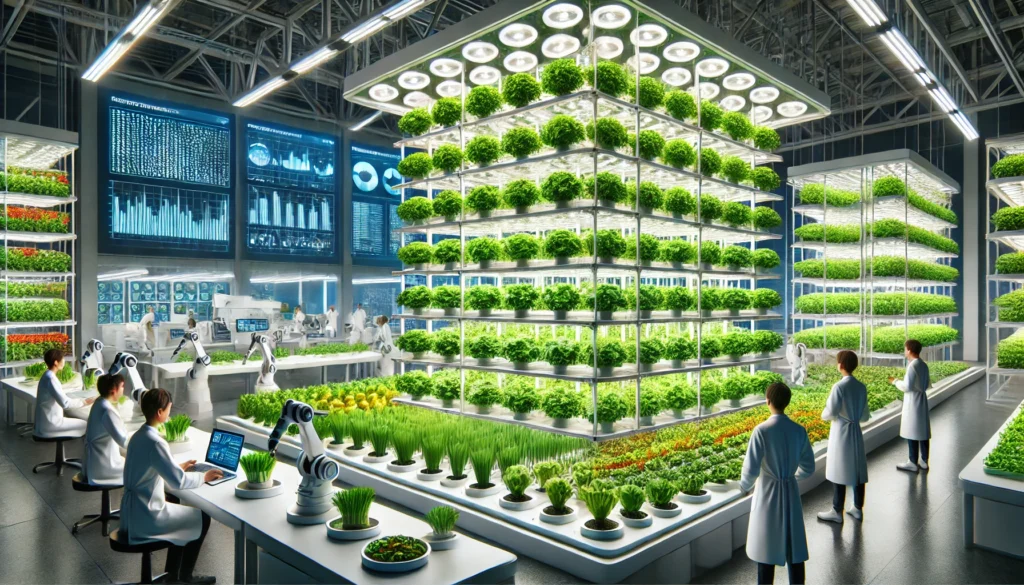
In conclusion, Bowery Farming has emerged as a giant, and going forward this sector has a bright future it is technology driven and now has a touch with sustainability. If you are a consumer, investor, or simply an observer, Bowery Farming is a company to focus on I see it as the one writing a new chapter in the book of global agriculture.


